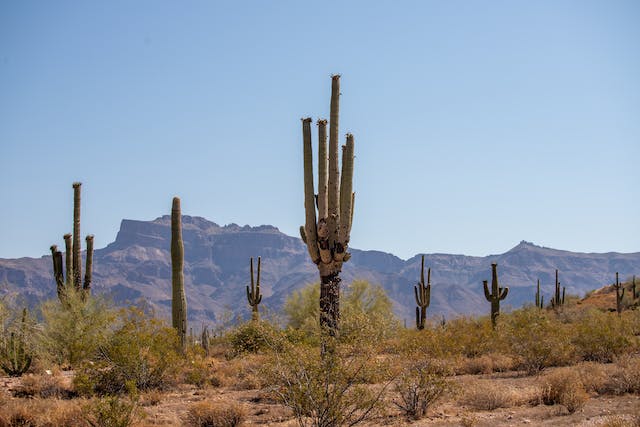He that dwelleth in the secret place of the Most High shall abide under the shadow of the Almighty. (Psalm 91:1, KJV)
The words of Psalm 91 have echoed through the ages, inspiring people of all walks of life with their message of divine protection and hope. Psalm 91 is a reminder of God’s unwavering faithfulness and a source of comfort and security in times of difficulty and uncertainty. But who wrote Psalm 91? Was it written by King David or someone else? When was it written? And what does it mean in the modern context?
In this and subsequent articles, we will explore the background of Psalm 91, who wrote it, when it was written, and what it means to us today.
It is our prayer that through this series of Psalm 91 (follow the links to the other articles on Psalm 91 at the end of this article), we will discover the timeless power of Psalm 91 and its continued importance to believers today.
Psalm 91 is one of the most renowned and oft-recited psalms, with many invoking God’s protection and deliverance from danger and calamity through its words. It is so well-known that even the devil himself quoted parts of it when he tempted Jesus in the wilderness. Many people over the centuries have recited its words in their prayers as a way to exorcise or drive away demons and evil spirits.
Who Wrote Psalm 91?

Psalm 91 is traditionally attributed to Moses because of its content and textual similarity to Psalm 90, its use of Deuteronomic language, and various Jewish traditions that support Mosaic authorship.
For example, The Septuagint attributes Psalm 91 to David because it makes reference to a “shield, an arrow, and a fortress,” all of which sound very Davidic according to them.
Jewish tradition, as expressed in the midrash, attributes Psalm 91 authorship to Moses, a view that is supported by the narrative of chapters 90–106 of Psalm.
The title “A Prayer of Moses the Man of God” is often included at the beginning of Psalm 90 in many translations of the Bible. This title was taken from the Septuagint, an ancient Greek translation of the Hebrew Bible. It indicates that the psalm is attributed to Moses, and for this reason, scholars ascribe the subsequent psalms (90–106) to him.
Nevertheless, many theologians attribute this Psalm to Moses, citing textual evidence such as the use of Deuteronomic language (Deuteronomy 32:11–32) in the psalm.
In the Journal of Biblical Perspectives in Leadership, Matthew F. Viau agrees with the viewpoint of Mosaic authorship, citing Gillingham’s writing and stating that:
Since it has no title or attribution, there is disagreement among scholars regarding its true author. Jewish scholars have generally attributed the authorship of Psalm 91 to Moses, because this is the last known attribution contained in the historical record (Gillingham, 2015). This authorship fits the narrative of Psalm 90-106, due to the nature of its contents. Gillingham (2015) notes, “Moses is especially prominent, and the Exodus traditions are emphasized over and above those of David and Zion, with David appearing only twice in this collection.” (p. 86). In this context, Psalm 91 is viewed as a reflective prayer, with Moses acting as the mediator between God and his followers (Gillingham, 2015).
MATTHEW F. VIAU, Journal of Biblical Perspectives in Leadership,
The authorship of Psalm 91, like that of many others in the Bible, is unknown, and its composition date cannot be pinpointed with any degree of certainty. This implies that any of the numerous anonymous psalm contributors could have written Psalm 91.
There were numerous authors who contributed to the psalms, some of whom gave credit to their work while others preferred to remain anonymous. Due to this lack of attribution by some of the authors of the psalms, scholars speculate on the authors’ identities.
Overall, we can conclude that, while the author of Psalm 91 may never be known, Moses appears to be the most likely candidate. Psalm 91 is attributed to Moses due to linguistic similarities with Psalm 90 (the preceding chapter).
According to our study above, many academics think that Moses wrote Psalm 91 to describe the protection and care that God will give to those who put their trust in Him.
A List Of Names of the Prominent Authors Mentioned in the Book of Psalms
The Book of Psalms is a collection of songs written by various authors from the time of Moses to Ezra (circa 450 BC). The psalms in this collection were written by various people at various times, and each one reflects the author’s unique experience with God. The majority of the authors mentioned in the book of Psalms are only identified through their titles or superscriptions.
Below is a list of the authors mentioned in the Book of Psalms, along with the verses that mention them:
- David: “A psaltery of David: I will extol thee, my God, O king; and I will bless thy name for ever and ever.” (Psalm 145:1)
- Asaph: “A Psalm of Asaph. God standeth in the congregation of the mighty; he judgeth among the gods.” (Psalm 82:1)
- Sons of Korah: “A Song of the sons of Korah. Great is the LORD, and greatly to be praised in the city of our God, in the mountain of his holiness.” (Psalm 48:1)
- Solomon: “A Psalm of Solomon. Give the king thy judgments, O God, and thy righteousness unto the king’s son.” (Psalm 72:1)
- Moses: “A Prayer of Moses the man of God. Lord, thou hast been our dwelling place in all generations.” (Psalm 90:1)
- Heman: “A Song. A Psalm of Heman the Ezrahite. O LORD God of hosts, how long wilt thou be angry against the prayer of thy people?” (Psalm 88:1)
- Ethan: “Maschil of Ethan the Ezrahite. I will sing of the mercies of the LORD for ever: with my mouth will I make known thy faithfulness to all generations.” (Psalm 89:1)
It is worth noting that scholars are divided on whether the superscriptions in the psalms provide sufficient evidence of authorship. Some scholars believe the titles identify the authors, while others think they were added by redactors.
What Is the Message of Psalm 91?
The message of Psalm 91 is that safety and security are found in God. The psalmist depicts God as a fortress, refuge, and deliverer, symbolizing strength and protection. He exalts God above his troubles, knowing that even in adversity, he can rely on God for guidance and protection.
The wilderness threats mentioned in Psalm 91 (pestilence, war, and wild animals) all demonstrate the various methods that God employs to care for and protect His faithful.
The message of Psalm 91 is that God will protect us (His faithful) against anything that might harm us. No matter what comes our way, we can rest in Him knowing that we are safe under His wing.
Whether we’re facing danger or temptation, God is with us and will keep us safe. But as we shall discover in subsequent posts of this psalm series, Psalm 91 does not guarantee us immunity from troubles.
God did not intend for us to use Psalm 91 as a magic ward to ward off problems. The Bible teaches that “all that will live godly in Christ Jesus shall suffer persecution” (2 Timothy 3:12, KJV).
But in the midst of the persecution, God will sustain and protect us, for His “grace is sufficient” for us. God’s promise of protection does not imply that we should court trouble. We would be guilty of presumptuous sin.
What Is the Setting of Psalm 91?

The imagery and language used in Psalm 91 point to a hostile environment. The mention of an adder, serpent, lion (Psalm 91:13), deadly pestilences (Psalms 91:3,10), immediately transports us to a wilderness setting.
Therefore, Psalm 91 is set against the harsh realities of wilderness, war, and disease, where neither night nor day brings peace. It is against this hostile backdrop that the psalmist confidently declares that God is his dwelling and abiding place, his refuge and fortress. The psalmist realized there was no other way out of his predicament other than to run to God.
What Are the Various Names Given to Psalm 91?
There are many different names given to Psalm 91. Each name highlights a different aspect of this powerful prayer for protection.
- A Soldier’s Psalm: Some call it the “soldier’s psalm” because it is a favorite psalm of soldiers on the battlefield, who recite it for protection. For example, during the Maccabean war, many fighters recited Psalm 91 as a prayer for protection before and during battle.
- A Prayer for Protection, Song of Evil Spirits, Song of Plagues: Others refer to Psalm 91 as a “prayer for protection,” “song of evil spirits,” and “song of plagues.” This is probably because the Talmud mentions that Psalm 91 was once engraved on amulets that were used to ward off evil spirits and plagues.
- Qui Habitat: Others know Psalm 91 by its Latin name, “Qui Habitat,” which means “He who inhabits.” No matter what name you choose to call it, Psalm 91 is one of the most beloved and popular psalms in the Bible.
What Makes Psalm 91 So Popular?
Psalm 91 has long been popular with people of faith for the following reasons:
- It has a universal appeal. Psalm 91 uses metaphors and vivid imagery that are universally relatable to individuals of diverse cultural backgrounds. The psalm also addresses the most fundamental human needs, such as protection, comfort, and hope, in a way that appeals to people from various cultures, backgrounds, and historical periods.
- It promises security and safety. Psalm 91 promises security and safety in a world that can sometimes feel uncertain, distressing, chaotic, and unpredictable. The psalmist describes God as a shield, a fortress, and a refuge, all of which are symbols of stability that remind us that those who put their trust in Him will be safe.
- It gives an assurance of protection: Psalm 91 addresses the dangers we face on a daily basis, such as diseases, violence, and fear, and assures us that if we put our trust in the Lord, these things will not harm us.
- It promises longevity and prosperity. Psalm 91 promises long life and prosperity for those who love the Lord. It is an assurance that God will triumph over evil. It reminds believers that God is in charge of human affairs, that He is watching over them, and that He will ultimately triumph over evil.
- It is easy to memorize. Psalm 91 is filled with vivid imagery and metaphors, and it is short and easy to memorize and recite. This makes it a popular choice for people who want to have a passage of Scripture that they can recite in times of need.
- It encourages close communion with God. Psalm 91 encourages us to put our trust in God and develop a personal and saving relationship with Him. We grow spiritually and experience God’s power when we establish a personal relationship with God. It also helps us to develop a mindset that is constantly aware of God’s presence and involvement in all aspects of our lives.
- It is adaptable and versatile to various human needs and situations. The theme of protection in Psalm 91 can be applied to a wide range of human needs and situations. For example, soldiers on the front lines of battle can recite this psalm and find comfort in its promises in their circumstances. A lonely adolescent on the verge of despair can find solace in this psalm’s assurance of love and acceptance. A sick person lying on his sickbed can pray for healing based on the promises of this psalm. A persecuted and oppressed believer can pray for deliverance based on the promises of this psalm.
- The story of Christ’s temptation in the wilderness helped to popularize it. The fact that Satan cited Psalm 91 when tempting Christ in the wilderness contributed to the chapter’s popularity over time. This is because those who are interested in what scripture Satan was referring to always return to Psalm 91.
So, why is Psalm 91 popular? Based on our study above, Psalm 91 is popular because of its universal appeal, reassurance of protection and security, promise of longevity and triumph over evil, ease of memorization, encouragement of close communion with God, versatility and adaptability to diverse human needs and circumstances, and the assurance of security and safety.
Applying the Message of Psalm 91
The descriptions of wilderness settings and accompanying hostilities in Psalm 91 evoke the chaotic world we now live in.
As God’s people, we, too, face challenges that make us feel as if we are living in the wilderness. We can easily relate to constantly being threatened by war, disease, pestilence, and other threats that seem more life-threatening than ever before on some days.
With all of these challenges, there may be times when even the night does not bring peace or the day does not guarantee safety from danger.
Psalm 91 directs our thoughts away from our current difficulties, death, and destruction and toward a place where abundant life thrives. This place of abundant life is found only in the presence of God.
Takeaway from the Study of Psalm 91
Psalm 91 is set in the wilderness, which can be a scary and dangerous place. Despite the harsh realities of the wilderness, the psalmist portrays God as a “place” where we can find refuge and maintain our peace in the midst of chaos.
This serene place is none other than God’s very presence, where we can dwell and abide unaffected by the chaos around us.
When your life seems to be unraveling and nothing seems to be holding together, seek refuge in God. Allow Him to lead you through the wilderness to a place of rest and restoration in His tent.
I invite you today to choose to make God your dwelling place and to abide forever in His shadow.
A Prayer of Protection Based on Psalm 91

Dear Lord, I feel as if I'm in the middle of a chaotic wilderness. Everything around me is bleak and hostile; I can hardly maintain my composure. Help me to face my fears and insecurities with courage, knowing that You are watching over me. Amen.
You may have noticed that I don't run ads on this blog. This is because my goal is to provide my readers with an ad-free and clutter-free experience. If you find my work inspiring, please consider supporting my ministry through our Ko-fi page or by pressing the button below. Your donations help maintain this website and enable me to create new spiritually enriching articles.
Related Posts:
What Does It Mean to Dwell in the Secret Place of the Most High? | Psalm 91:1 Breakdown
What Is the Meaning of “The Lord Is My Refuge and My Fortress”? | Psalm 91:2 Breakdown
What is the Meaning of the “Snare of the Fowler” and “Noisome Pestilence”? | Psalm 91:3 Breakdown
What is the Meaning of “God Will Cover You and Shield You”? | Psalm 91:4 Breakdown
What Is the Meaning of “Terror by Night” and “Arrow that Flies by Day? Psalm 91:5 Breakdown

Read and pray on your post of Psalm 91: 3,4. Thank you for your meditation.